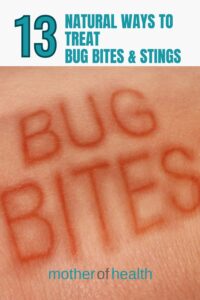

These ingenious solutions will not only soothe the discomfort, but also help you get back to enjoying the best of what summer has to offer. Let's dive in and explore these useful treatments together.
There are plenty of over-the-counter ways to treat them… But they are often filled with harsh chemicals. Fortunately, there are some effective and natural ways to treat bug bites.
But first, let’s look at the science behind bug bites to understand how to treat them fully.
How to Identify a Bug Bite
Identifying a bug bite is not always easy, but there are some simple signs to look for.
Bug bites usually cause redness, swelling, and itching skin. You might see a small bump or a raised area where the bite happened. Sometimes, the bite can look like a small dot with a red circle around it.
It's important to remember that different insects can cause different reactions, so it's best to pay attention to how your body reacts to the bite and seek medical advice if you're unsure or experience severe symptoms.
What Causes the Symptoms of Bug Bites?
What Happens When an Insect Bites You
When bugs land, they sting your skin and inject saliva into your skin. Your immune system responds by producing histamine. Histamine attacks certain foreign substances it considers dangerous and causes itching, redness and swelling. So as insects are different, we react differently.
While it is a good thing your body is fighting off the bite, the itching, and swelling cause some slight pain and discomfort.
A first aid kit can be incredibly useful for insect bites. Whether you're at home, in the wilderness, or on a camping trip, a well-stocked first aid kit can be a valuable companion in handling insect bites safely and efficiently. Consider making a custom-designed kit with everything you need to handle bites and stings.
Symptoms of an Insect Bite or Sting
The venom in an insect bite may cause skin blistering and redness. This is sometimes painful but generally harmless. The affected areas can sometimes become painful or itchy.
The severity of bites varies by insect species and the severity of the stinging. In rare situations, some individuals may suffer severe allergic reactions to their bites. For natural ways to soothe skin irritation, you might find our post on home remedies for poison ivy helpful.
Insect bites can cause a tiny lump to form and are usually very itchy. Occasionally small holes or bites are visible. The lump might contain an inflamed (swollen) surface which may be covered by fluid. It's called a weal.
Biting insects usually heal within a short amount of time and can easily be treated at home.
How to Prevent Bug Bites
Here are some simple tips to help keep those pesky bugs away.
First, wear appropriate clothing in the form of long sleeved shirts and pants when possible, especially in areas with lots of insects.
Use a chemical-free insect repellent on exposed skin, and make sure to reapply as directed.
Keep doors and windows screened to prevent bugs from getting inside your home.
Avoid standing water, as it attracts mosquitoes.
When spending time outdoors, try to stay away from areas with tall grass or dense vegetation where bugs hide.
Finally consider using mosquito nets while sleeping to create mosquito bite-free sleeping zone.
12 Natural Ways to Treat Bug Bites
1. Chilling Relief: Ice-Cold Remedies for Soothing Insect Bites
It may sound simple, but a common ice pack or cold pack can help soothe and heal summer bug bites to tackle the swelling and itching from insect bites and stings.
The best way to use an ice pack without causing discomfort is to put some ice (or frozen peas) in a plastic baggy. Then wrap the pack in a towel and apply it directly to the bite… Or try Boo Boo Buddy. Kids love them!
Apply a cold compress using a small washcloth or towel
The cold temperature of a wet compress helps to constrict blood vessels, reducing inflammation and numbing the area, which provides temporary relief from itching and pain.
It is recommended to apply an ice pack or cold compress to a fresh bug bite for about 15 or 20 minutes per hour for the first 6 hours after the initial bite.
An ice pack will help reduce inflammation, swelling, relieve itching, and provide a soothing relief to the area. It is also recommended to elevate the area if possible and avoid direct contact with your skin, as it can cause burns.
2. A Sweet Solution: Harnessing the Power of Honey
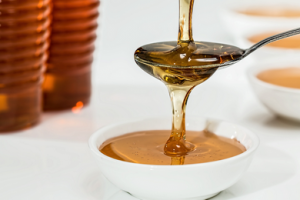
Instead of running to the medical cabinet, turn to the kitchen! Honey has many antibacterial and anti-inflammatory properties to help treat your bug bite.
This sweet and natural remedy can help reduce redness, swelling, and itching caused by the insect's venom or saliva.
When applied to a bite, the honey soothes the area and prevents infection. Moreover, honey's sticky consistency helps to draw out any remaining venom or irritants, providing immediate relief.
If you don't mind the stickiness, apply a small dab of honey to the affected area for remarkable healing benefits.
3. Naturally Soothing Aloe Vera
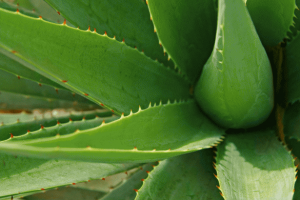
Aloe vera is well known as a topical cure for sunburns and other minor skin irritation, but it may surprise you that is also a great remedy for an insect bite. It has soothing properties to provide relief to the itchiness of biting insects.
You can either get a fresh aloe vera plant or buy a ready-to-go aloe vera gel. If you use a fresh plant, simply cut the plant in half and rub the interior gel on your affected bites to reduce itching and soothe skin irritation.

4. Alcohol, Witch Hazel, or Hand Sanitizer for Itchy Bites
5. Minimize Discomfort with an Herbal Elixir: Basil
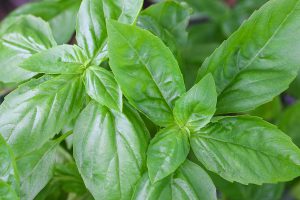
While it may never occur to you to use basil for anything outside of cooking, it has been proven to soothe bug bites.
Basil has antibacterial properties and also contains a key ingredient, eugenol, that relieves itchy skin. You can simply chop basil leaves and apply them directly to the skin.
Or try combining rubbing alcohol or witch hazel with basil. Here, I've taken a page from Pliny the Elder, who swore that basil takes the itch out of bug bites and stings. Just add chopped basil to 2 oz of witch hazel, and let steep in an air-tight glass container. After a week or so, strain off the basil, and you will have a cheap and effective mosquito bite remedy. Adding basil does seem to enhance the itch-relieving properties.
6. Essential Oils of Lavender, Tea Tree, Peppermint and Thyme

Using essential oils may be the best-smelling and simplest method to relieve bug bites. The preferred oils are lavender, tea tree, peppermint, and thyme. While they each have their own specific benefits, all listed essential oils are antibacterial and provide a cooling relief to common bug bites. Simply dab a small drop on the affected bite for instant relief!
7. Citrus Fresh Relief: Lemon or Lime Juice

Like other home remedies listed, lemon and lime juice contain antibacterial properties. However, what makes them unique for fighting bites is that they contain citric acid. Citric acid numbs bug bites when applied.
You can apply either prepackaged concentrate juice or cut open and juice a fresh fruit. Again, beware- when applied to an open bite, it will sting, but the Vitamin C present in the citrus fruit will help reduce pain and aid healing.
8. A Minty Cool Fix: Toothpaste
Toothpaste is an unexpected, but surprising effective home remedy for a bug bite. Its cooling properties help alleviate itching and reduce inflammation, providing quick relief. Toothpaste also has astringent properties that can help reduce swelling.
When applied topically to the affected area, toothpaste creates a soothing sensation that distracts from the discomfort of the bite. Additionally, toothpaste contains ingredients like menthol and baking soda, which can help neutralize toxins and reduce redness.
For best results, choose a toothpaste without added dyes or gels and apply a small amount directly to the bug bite. White toothpaste is best, but any type you use can do the trick.
Leave it on for a few minutes before rinsing off with water. This simple household item can become a handy ally in combating the irritation caused by other biting insects. Simply apply a dab and wait for it to dry before rinsing off with water.
9. Baking Soda Paste: Soothing Bug Bites the Natural Way
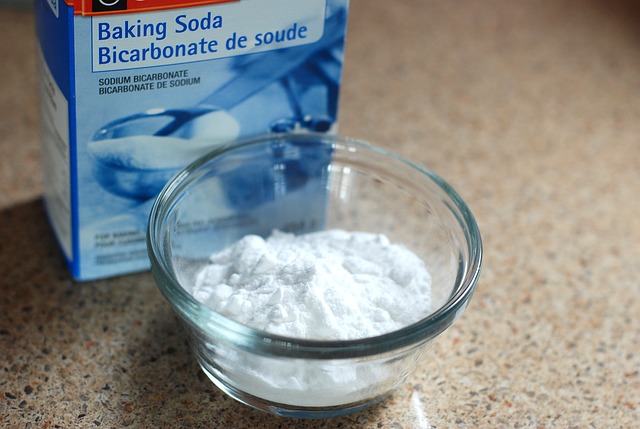
Baking soda, a pantry staple, offers a simple yet effective natural remedy for bug bites. Its alkaline properties help neutralize acidic toxins from insect venom, reducing the inflammation of an itchy bite.
When mixed with water to form a paste, baking soda can be applied topically to the affected area, providing instant relief. This mild abrasive paste also helps to gently exfoliate the skin, promoting faster healing.
Additionally, baking soda's anti-inflammatory properties can soothe the redness and swelling caused by bug bites. As a safe and readily available option, baking soda proves to be a valuable addition to your bug bite relief toolkit.
10. The Silky Smooth Solution: Corn Starch
Corn starch is one of the most common natural remedies out there. Its fine texture helps absorb moisture and sweat, keeping the affected area dry and less prone to itching.
When applied topically, corn starch creates a soothing barrier that reduces friction and irritation from clothing or scratching. Its gentle nature makes it suitable for sensitive skin, providing a cooling effect that eases discomfort. By forming a protective layer on the bug bite, corn starch aids in reducing inflammation and promoting faster healing.
For best results, simply apply a small amount of corn starch directly to the bite area and experience it's natural relief for bug bites.You can make a thick cornstarch paste by simply mixing the starch with cold water and mixing well. Once the mixture is done, apply it to the bite or sting and wait for the itch to disappear.
11. Garlic Power: A Natural Remedy for Soothing Bug Bites

12. Double the Relief: Colloidal Oatmeal Paste and Bath
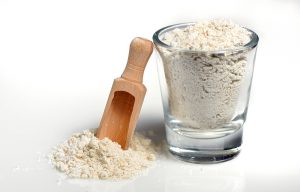
Colloidal Oatmeal, a versatile and time-tested remedy, offers double the relief when it comes to soothing bug bites.
Oatmeal paste
As a paste, oatmeal mixed with water creates a comforting, anti-inflammatory concoction that can be applied directly to the bite area. It's gentle texture soothes itching, reduces redness, providing instant relief.
Oatmeal bath
For a more holistic approach, an oatmeal bath can work wonders. Adding oatmeal to warm bathwater creates a skin-calming soak that covers your entire body, easing the discomfort of multiple bug bites simultaneously.
This natural remedy effectively reduces inflammation and irritation, leaving you with smooth, itch-free skin.
13. Mud
That's right, mud! Mud is another age-old remedy that is perfect if your bite happens while you're at the beach, on a trail, or camping. When applied topically, mud's cooling and soothing properties provide relief from itching and inflammation.
The mud's natural texture also creates a protective barrier, shielding the bite area from further irritation and minimizing the risk of infection. Moreover, the drying effect of mud can help draw out toxins or venom from the bites and stings, expediting the healing process.
While it may sound unconventional, mud's therapeutic qualities make it a simple and accessible remedy, offering relief from the discomfort of insect bites and allowing you to get back to enjoying the outdoors.
Before You Go
Don't forget to follow us on Pinterest. Thank you for your time and reading.
The information presented here is in no way meant to serve as medical advice. It is merely information and opinion. All information, content, and material of this website is for informational purposes only and are not intended to serve as a substitute for the consultation, diagnosis, and/or medical treatment of a qualified physician or health care provider. If you are experiencing symptoms of any kind, please consult with your physician.

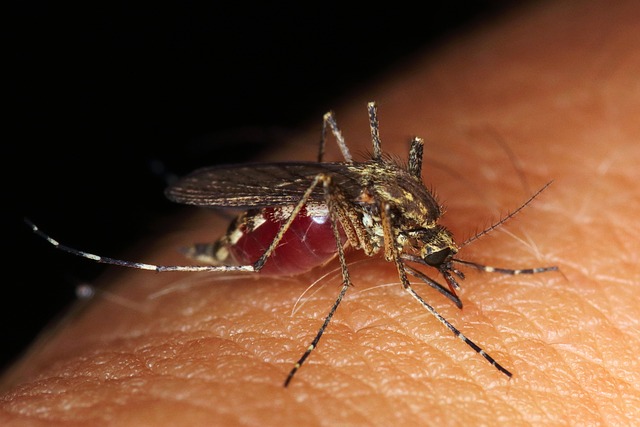
A very useful and I am sure popular post I got a bite the other night luckily my wife had got propolis from a beehive and mixed it with Rakia which is a Bulgarian alcohol 70% proof made with peaches. My wife’s dad makes it in the garden. That stopped the stinging pretty quick. I can see loads of other great cures on your site that will work great too.
Wishing you a bite free summer from rainy Northern Ireland 🙂
Sotiris Bassakaropoulos
Hi Sotiris, Nice to hear from you. Rakia sounds very interesting and potent! Thanks for sharing and connecting. 🙂
Essential oils are my favorite to use on big bites too, but since i forgot them at home some of these other options will help 🙂 Theres a few i did not know, like garlic! I’m partial to just throwing mud at my kids though 😉 thanks for the info!
Thanks for connecting Heather! 🙂